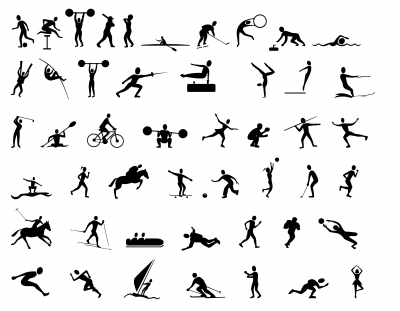

Why is it that one person can eat pretty much anything and everything, whilst others continually struggle with their weight?
There are heaps of reason why some people struggle with attaining and maintaining their ideal weight, not the least of which might be that their “ideal weight” is unrealistic, but that’s a topic for another day.
Today, we’ll stick to metabolism, and look at how you can boost your metabolism to lose weight.
What is metabolism?
“Metabolism” refers to the chemical reactions going on inside your body, all day, every day, which are necessary to maintain life. A pretty amazing network of hormones and enzymes convert food to fuel so that your body can use it to survive. Your metabolism affects how efficiently your body burns that fuel.
Basal Metabolic Rate (BMR)
Your BMR is the energy your body needs to keep it functioning if you sat around on the couch all day and did nothing. This energy is taken into your body in the form of food, with the amount of energy being measured in calories. Metabolic reactions occur at different rates in everybody. Your rate of metabolism usually corresponds to the speed with which you gain or lose weight. Therefore, you should boost your metabolism to lose weight.
What Factors Influence Your Basal Metabolic Rate?
To some extent you can blame (or thank) your parents for the speed at which your metabolism functions. Age also plays a role in metabolism, with activity in our cells slowly down as we age. And if you’re a woman, your metabolism can be 10 t 15 times slower than the men you know.
How to manipulate your BMR
We can manipulate our BMR and change the rate at which we burn fuel. Here are a few simple tips.
Exercise
Muscle burns calories more quickly than fat does, so body weight composition is a big factor in determining your overall metabolic rate. Seems a bit unfair, but if you have a lower body fat percentage, then you will have a higher percentage of muscle mass, ergo, a faster metabolic rate, helping you to maintain that low body fat percentage.
You can influence your body composition by combining strength training with cardio training. The cardio training will help you to burn fat, and the strength training will help you to build muscle – increasing your lean muscle mass.
Muscle Building
If you’re a runner, include some hills in your training, which will help to strengthen your legs, whilst improving your cardiovascular fitness and burning body fat. As with any new exercise, work up to hill running gradually. If you’re not up to running hills yet, walking quickly up hills will also build strength.
Most of us have heard that muscles burn more calories than fat does, but just how many more? 73 calories per kg per day, that’s how many more. So if, in the unlikely case, you have 5kgs of fat on your right buttock, and 5kgs of muscle on the left, your left buttock would burn 375 more calories per day than your right. The more muscle you build, the higher your resting metabolic rate will be, the more calories you will burn. A strength workout can elevate your basal metabolic rate for as long as 15 hours post workout!
You can estimate your metabolic rate here
[mantra-multi][mantra-column width=”1/2″]
[calc id=744]
[/mantra-column] [mantra-column width=”1/2″][/mantra-column] [/mantra-multi]
Your daily calorie consumption to maintain your body weight should be about 1.2 times your basal metabolic rate, if you had a very sedentary lifestyle. That is, you do no exercise, other than for such things as making your dinner, surfing the net and walking to your car.
If you are trying to lose weight, and you are sedentary, your daily calorie intake should be less then your basal metabolic rate times 1.2. If you’re aiming to lose ½ kg per week, your calorie deficit should be 500 cals per day, every day (either by taking in fewer calories, or expending more.
Diet
What we eat, and when we eat it comes into play when it comes to metabolic rate. Skipping meals during the day in the hope of losing weight is likely to cause you to gain weight. The body goes into starvation mode when it is deprived of energy, slowing down the metabolic process, storing energy for a rainy day (and don’t we know about raining days in Sydney at the moment?) Long term, consistent calorie restriction and meal skipping is therefore counter productive if weight loss is your goal. It’s important to eat regular meals so that the metabolism stays high.
If you are looking at calorie restriction for weight loss, that’s fine, but make sure you eat regular meals and have at least one day a week where you allow yourself to eat about 10-20% more calories, to prevent your metabolism shutting down.
Hormonal Balance
Many hormones play a role in metabolism, including Thyroid hormones, insulin and cortisol. Elevated thyroid hormone levels, for example, will be associated with an increase in metabolic rate, weight loss, and increased appetite, whilst an abnormally low level of thyroid hormones can be associated with weight gain. Post-natal and peri-menopausal women can experience lower levels of thyroid hormone. If you feel your metabolic rate isn’t what it used to be, see your health care provider to have a thorough check up.
Go to Part Two of Metabolism, whre we look at how to burn an extra 160 calories a day and lose weight.


